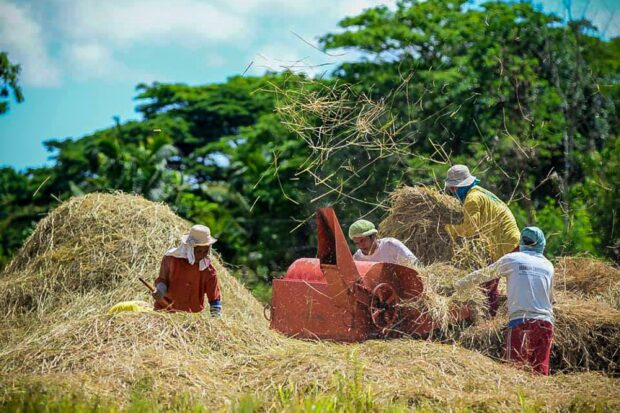Shortages in data, not just food, plague Philippine agriculture

Recent years have seen dramatic fluctuations in food supply and prices. Onion prices, for instance, once skyrocketed sevenfold. At other times, farmers dumped tomato harvests due to a lack of buyers.
Food prices are often blamed for inflation spikes, leaving the government scrambling to respond to crises rather than preventing them. This reactive stance is frequently due to a lack of accurate, timely data, leading to poor program design, flawed planning, and delayed decision-making.
A prime example is the recurring issues with rice supply and prices.
In January 2021, the Philippine Statistics Authority (PSA) reported a rice inventory of 2.332 million tons. Adding domestic output of just over 13 million tons and imports of nearly 3 million tons, the total supply for the year was about 18.4 million tons.
By December 31, only 1.86 million tons remained, indicating a usage of approximately 16.5 million tons. Considering the amount for seeds, animal feed, industrial use, and waste, about 14.9 million tons were consumed as food.
This should have raised concerns. The 14.9 million ton consumption implies an average per capita rice consumption of 135 kilos in 2021, far above the Department of Agriculture’s (DA) estimate of 119 kilos. This discrepancy was never addressed, nor was the PSA’s 2021 ending inventory figure adjusted. This oversight led to statistical anomalies in 2022.
Despite a slight production dip in 2022, the total supply was higher due to increased imports of 3.8 million tons. Yet, the PSA reported a nearly identical ending inventory of 1.85 million tons as in 2021. This discrepancy raises questions about the excess supply.
The PSA maintained its inventory estimates were accurate, assuming a per capita consumption of about 110 kilos in 2022.
Given this, either consumption increased or production decreased. High rice prices in 2022 make a significant increase in consumption unlikely. Total consumption growth likely mirrored the population growth rate, about 1.5%, or roughly 200,000 tons.
Thus, the discrepancy likely lies in production estimates. Our calculations suggest production was around 9.7 million tons, not the reported 12.9 million tons. This implies a substantial 25% drop in palay production, 5 million tons less than reported. Even using the DA’s higher consumption figure, production still falls short of PSA’s estimate by 3.2 million tons.
Industry players note a 30% decline in major fertilizer imports as prices doubled, hinting at reduced fertilizer use. However, the PSA reported only a 1% drop in production and yield.
A significant production drop in 2022 suggests reliance on incorrect figures, possibly contributing to the rice crisis in August and September. This overestimation of local production distorted the market’s actual rice supply.
This raises concerns about the effectiveness of investments in the rice industry, suggesting limited improvement in farmers’ productivity and competitiveness. Consequently, reliance on imports increases, along with vulnerability to international market disturbances.
Persistent data discrepancies will continue until data collection and analysis improve. The DA’s recent claim of ending 2023 with a 90-day stock level, 78% higher than 2022’s ending inventory, is questionable given modest production increases and significant import reductions.
Effective analysis, planning, and decision-making require accurate information. Addressing recurrent food shortages hinges on resolving data deficits.
The PSA likely needs more staff and technical resources for a dedicated agricultural data system. Within the DA, a system should link data from various agencies and programs, providing implementers and policymakers with timely, relevant information. The private sector can aid by regularly validating data accuracy.
(Raul Montemayor is the national manager of the Federation of Free Farmers)




















